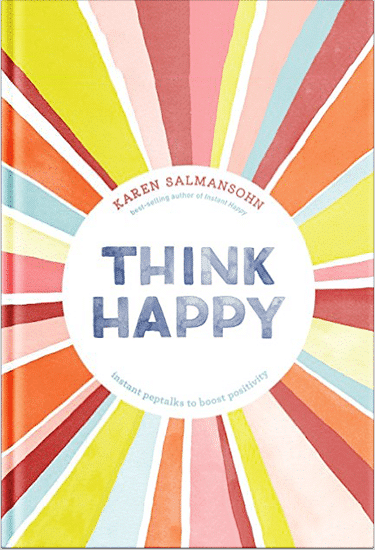 Want to know how to deal with guilt so you can stop feeling guilty all the time? Learn about the 2 types of guilts and how to overcome them.
Want to know how to deal with guilt so you can stop feeling guilty all the time? Learn about the 2 types of guilts and how to overcome them.
Picture this: You’re lying in bed, unable to sleep, as your mind replays a moment from your day. Maybe it was a harsh comment you made in a moment of stress. Or perhaps you forgot to call a friend on their birthday because you were swamped at work.
These moments of guilt nag at you, forming an uncomfortable knot in your stomach that just won’t loosen.
Over time carrying the weight of guilt can feel like you’re dragging around an invisible heavy anchor with you everywhere you go.
Forgiving yourself can feel out of reach – leaving you stuck in a relentless cycle of self-reproach that seems inescapable.
The challenge: How to learn from your mistakes – without letting them drag you down or define you?
No worries. I’m here to help you to master these challenging feelings so you can stop feeling guilty!
I’m writing this article because I’m a leading Behavioral Change Expert, the bestselling author of “Think Happy” and founder of The Anxiety Cure Course – which is a therapist-recommended online program.
I’ve spent decades studying the human mind and helping people to unlock their highest potential.
Coming up I am going to explain how to distinguish between two types of guilt. Plus how to harness the power of each kind of guilt for personal growth. So, let’s get started!
The 2 Types of Guilt:
Guilt can be a constructive guide or a crippling foe.
The key is distinguishing between these two types of guilt:
- Constructive, Healthy Guilt: Acts as a moral compass, steering you towards better choices.
- Crippling, Unhealthy Guilt: Traps you in regretful loops, focusing on unmet and often unrealistic expectations.
What Is Healthy Guilt?
Have you ever had a heated argument with a close friend – and in the heat of the moment, harsh words were exchanged? If so, you know that sinking feeling of regret? That’s healthy guilt, acting as your inner moral compass, gently guiding you back to your true north. It’s the internal voice that says, “I shouldn’t have said that,” reminding you of the power of your words and actions.
How to Deal with Healthy Guilt?
Empathy is the superhero sidekick of healthy guilt. It allows you to understand how your actions affect others, fostering a sense of responsibility and compassion. Your new mission should be to reflect on your actions – but not to berate yourself. This reflection is the cornerstone of personal growth – as well as stronger relationships. Here’s how to to deal with healthy guilt in a healthy way!
4 Strategies to Turn Healthy Guilt into Positive Action:
 Healthy guilt is a call to action. It’s an invitation to make amends, to learn, and to grow.
Healthy guilt is a call to action. It’s an invitation to make amends, to learn, and to grow.
- Acknowledge and Apologize: When healthy guilt arises, acknowledge it and apologize if your actions have hurt others. This is the first step towards healing and understanding.
- Learn and Adapt: Let healthy guilt guide you towards becoming a more empathetic and conscious individual. Use healthy guilt as a lesson. What can you learn from this experience? How can you avoid repeating the same mistake? Adapting your behavior is a sign of growth.
- Make Amends: If possible, take action to make amends. This could be through a direct action to rectify the mistake or engaging in community service to give back.
- Set Realistic Expectations: Understand that everyone makes mistakes. Set realistic expectations for yourself and recognize that perfection is unattainable.
Your new Guilt Reducing Mantra:
- “Now that I know better, I will do better!”
By focusing on growth and the future, this mantra helps alleviate the burden of guilt, shifting the perspective from dwelling on what went wrong to how things can be made right. Plus it reinforces adopting accountability and a growth-oriented mindset.
Next up, let’s explore unhealthy guilt – the second version of guilt.
What is Unhealthy Guilt?
Imagine this scenario: You’ve been working late hours for weeks, striving to meet every demand at work. One evening, you decide to leave work at a reasonable hour to have dinner with your family. But instead of enjoying this much-needed break, you are overwhelmed with guilt. A nagging voice in your head keeps whispering, “You should be working. You’re not doing enough.”
This is unhealthy guilt – it’s the voice that whispers “I’m not good enough” long after you’ve tried to make things right. Or it’s the guilt that arises from situations completely out of your control, like needing to balance work with personal life.
Unhealthy guilt traps you in a cycle of self-blame for things that are often beyond your influence or responsibility. It’s feeling guilty for not meeting unrealistic standards, like being the perfect employee, parent, or partner, all at once. This type of guilt is not about a specific action you regret – but a pervasive feeling of never living up to an impossible ideal.
How To Deal With Unhealthy Guilt?
Unhealthy guilt often stems from deeper issues — unrealistic self-expectations, past traumas, or external pressures. It’s less about what you did and more about how you view yourself. Understanding these roots is crucial. Are you holding yourself to impossible standards? Are past experiences coloring your present? If so, here are some strategies to help you stop feeling guilty.
4 Strategies to Stop Feeling Unhealthy Guilt:
 Self-Compassion: Treat yourself with the same kindness and understanding you would offer to a friend. Recognize that being overly critical is not helpful.
Self-Compassion: Treat yourself with the same kindness and understanding you would offer to a friend. Recognize that being overly critical is not helpful.- Rational Thinking: Challenge your guilt. Is it based on realistic or rational thoughts? Are you blaming yourself for things outside your control?
- Seek Support: Talk to a friend. Sometimes an outside perspective can provide valuable insights and strategies for overcoming guilt.
- Mindfulness and Acceptance: Practice mindfulness and self acceptance. Recognize and accept your feelings of guilt, but don’t let them define you. Learn to let go and live in the present.
Your new Guilt Reducing Mantra:
- “I am enough, and I release myself from unrealistic expectations.”
In this mantra, the focus is on self-acceptance and releasing the burden of striving for unattainable standards. It serves as a gentle reminder that your worth isn’t defined by perfection or external achievements – and shifts the perspective from a critical self-view to one of compassion and rationality.
Conclusion: How to Stop Feeling Guilty
Navigating guilt is not about avoiding it, but learning to recognize its forms and dealing with them appropriately.
- Healthy guilt can be a tool for self-improvement.
- Unhealthy guilt is a barrier to well-being.
By understanding and addressing both types of guilt, you can transform guilt from a stumbling block into a stepping stone. Plus, remember, at the end of the day, we’re all wonderfully imperfect humans, stumbling, making mistakes, learning, and growing. And that’s perfectly okay.
If you want further support to stop feeling guilt, maybe it’s time to chat with a Mindset Mastery Coach – like myself. I encourage you to explore my 1 on 1 Zoom Mindset Mastery Sessions. I will help you to master your thoughts, beliefs and habits – so you can enjoy your life more.
Get Tools to Let Go of Stressful Thoughts
Explore my bestselling, research-based online program, The Anxiety Cure Online Course – which is therapist recommended.
Think happier. Think calmer.
Think about subscribing for free weekly tools here.
No SPAM, ever! Read the Privacy Policy for more information.
One last step!
Please go to your inbox and click the confirmation link we just emailed you so you can start to get your free weekly NotSalmon Happiness Tools! Plus, you’ll immediately receive a chunklette of Karen’s bestselling Bounce Back Book!



 Want to know how to deal with guilt so you can stop feeling guilty all the time? Learn about the 2 types of guilts and how to overcome them.
Want to know how to deal with guilt so you can stop feeling guilty all the time? Learn about the 2 types of guilts and how to overcome them. Healthy guilt is a call to action. It’s an invitation to make amends, to learn, and to grow.
Healthy guilt is a call to action. It’s an invitation to make amends, to learn, and to grow. Self-Compassion: Treat yourself with the same kindness and understanding you would offer to a friend. Recognize that being overly critical is not helpful.
Self-Compassion: Treat yourself with the same kindness and understanding you would offer to a friend. Recognize that being overly critical is not helpful.